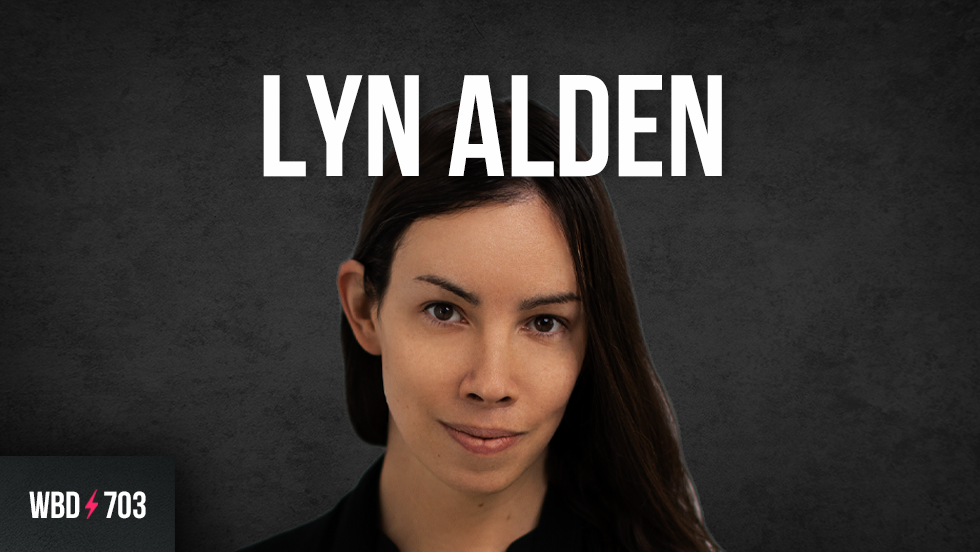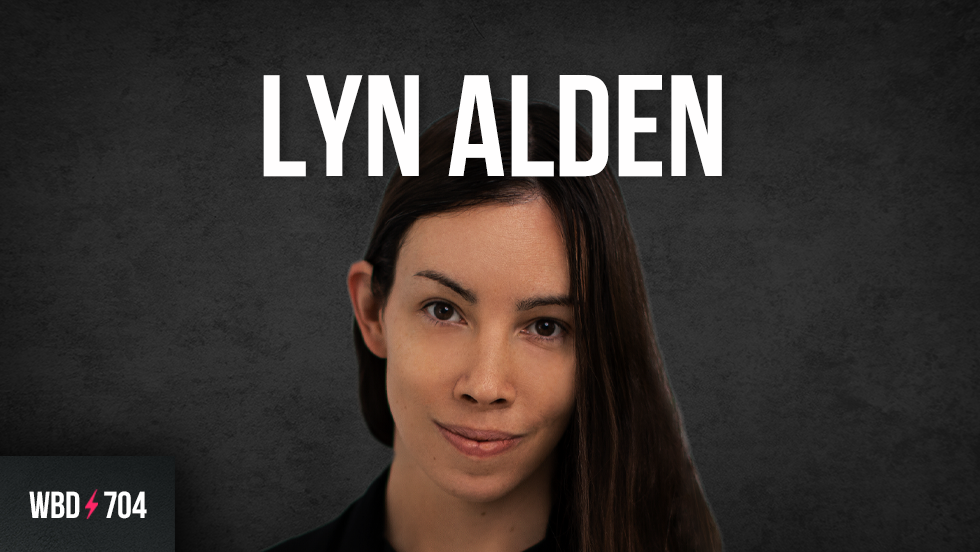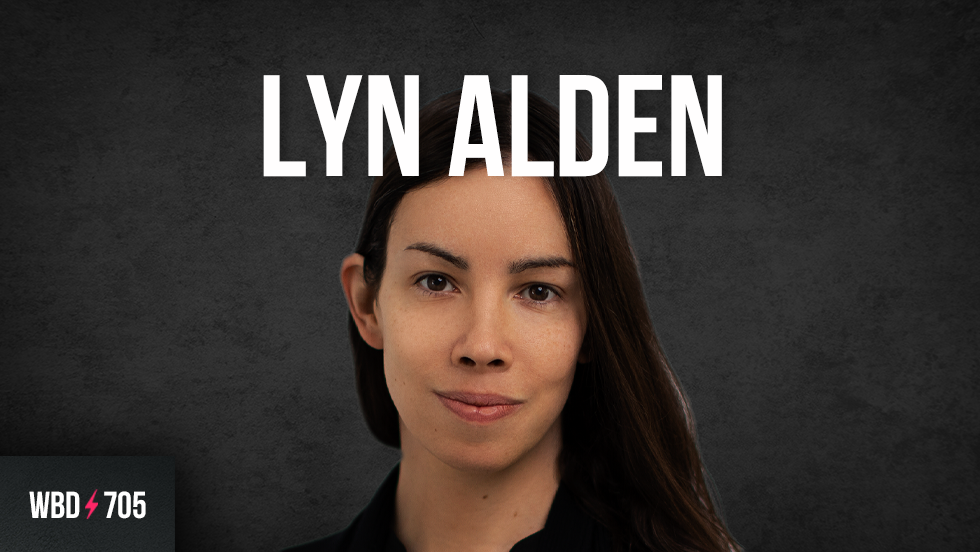Broken Money

2023 Honor Roll - Broken Money by Lyn Alden
Nature’s ledger (gold) has robust parameters for supply and debasement but doesn’t move and get verified fast enough in the telecommunication age. Mankind’s ledger (the dollar) moves and gets verified fast enough but doesn’t have robust parameters for supply and debasement. The only way to fix this speed gap in the long run would be to develop a way for a widely accepted, scarce, monetary bearer asset itself to also be able to settle over long distances at the speed of light. In other words, something like bitcoin. - Lyn Alden
cited from lynalden.com/speed-of-transactions-vs-settlements/
What Bitcoin Did with Peter McCormack - Part 1: The Emergence of Money with Lyn Alden - Listen on Fountain
“Commodity money is like nature’s ledger…bank money is basically a ledger governed by nation states…and then open-source money like Bitcoin is money governed by the users.”— Lyn AldenLyn Alden is a macroeconomist and investment strategist. In this interview, we discuss Lyn’s amazing new book: Broken Money. This show, the first in a series of three shows, delves into the history of money: the concept of money as a ledger, its different forms throughout history, as well as the properties that make a commodity suitable for use as money. - - - - One of the key concepts Lyn explores is the idea of money as a ledger, of which there are three main forms: commodity money, governed by the specific properties of the physical commodity being used as money; bank money, which is a ledger governed by nation states and managed by central banks; and, open-source money like Bitcoin, where the ledger is governed by the users, who create and maintain the rules of the system. But how did money develop?Money emerged as an innovation to solve the problems of barter, where the limitations of the double coincidence of wants and lack of trust between traders made transactions difficult. Money emerged as a liquid accounting system making transactions more efficient. Different cultures used various commodities as forms of money throughout history, including shell beads, cocoa, salt, and furs. Each type of commodity used as money had unique properties that made them suitable, such as divisibility and the ability for them to be recombined. As technology advanced, people were able to produce more of these commodities, which led to their devaluation. However, two commodities that were difficult to devalue were silver and gold. These precious metals were rarer and had a natural difficulty adjustment, making them more suitable as money.As important as the technology of money was the evolution of the theory of money. Two competing theories of money emerged: commodity theory and credit theory. Commodity theorists believed that barter was the precursor to money. However, credit as a form of money has been found in modern hunter-gatherer societies and used as an effective way of circumventing the need for commodities as money.The current paradigm is seeing bank money and credit theory coming under significant strain. Every system controlled by human administrators degrades over time, with most currencies experiencing high inflation or even hyperinflation within a human lifetime. However, despite attempts to find alternatives like the dollar or Bitcoin, nothing quite fills the void left by the local currency. How money broke will be the focus of the next show.- - - - This episode’s sponsors:Iris Energy - Bitcoin Mining. Done Sustainably Ledn - Financial services for Bitcoin hodlersBitcasino - The Future of Gaming is hereLedger - State of the art Bitcoin hardware walletWasabi Wallet - Privacy by defaultUnchained - Secure your bitcoin with confidence-----WBD703 - Show Notes-----If you enjoy The What Bitcoin Did Podcast you can help support the show by doing the following:Become a Patron and get access to shows early or help contributeMake a tip:Bitcoin: 3FiC6w7eb3dkcaNHMAnj39ANTAkv8Ufi2SQR Codes: BitcoinIf you do send a tip then please email me so that I can say thank youSubscribe on iTunes | Spotify | Stitcher | SoundCloud | YouTube | Deezer | TuneIn | RSS FeedLeave a review on iTunesShare the show and episodes with your friends and familySubscribe to the newsletter on my websiteFollow me on Twitter Personal | Twitter Podcast | Instagram | Medium | YouTubeIf you are interested in sponsoring the show, you can read more about that here or please feel free to drop me an email to discuss options.

What Bitcoin Did with Peter McCormack - Part 2: How Money Broke with Lyn Alden - Listen on Fountain
“The amount of games and shenanigans and corruption that goes on in all these…different currencies, from the big ones and especially the small ones, it’s remarkable; and, it’s largely technological limitation that got us to this point.”— Lyn AldenLyn Alden is a macroeconomist and investment strategist. This interview is the second of three shows where we discuss Lyn’s amazing new book: Broken Money. In this show, we explore the concept of hard money, the ascendancy of paper money and the transition from gold-backed currency to fiat currency. We talk about the birth of banks, fractional reserve lending, central banks, the flaws of the Bretton Woods system, and the impact of the petrodollar. - - - - Historically, hard money like gold has been considered the ideal form of money due to its scarcity & durability. However, another aspect to consider is utility. Paper money, despite not being as hard as gold, became dominant because of its convenience and speed. Speed is perhaps one of the most important functions people demand in money: throughout history, humans have sought to make money more portable and efficient. At the same time as money was evolving, so were the institutions associated with managing money. Banks can be traced back hundreds of years with the provision of credit and the increased portability of money. The modern form of banks emerged in Europe over the past few centuries; the importance of banking to the functions of the state led to the development of central banks that financed governments, particularly during times of war. The demand for speed opened the door for the introduction of fiat currency, which offered faster and more convenient transactions. Government legal tender laws and taxes on non-monetary assets further solidified the dominance of fiat currency. But, this also opened up the distortion of money as a result of greed and abuse. The speed arbitrage provided by fiat currency has allowed for more manipulation and corruption. The evolution of fiat currency led to the emergence of the petrodollar: the United States sought to replace gold with the dollar and maintain its economic and military dominance by enabling the dollar to become the global reserve currency. However, this has negatively impacted countries outside of the US, and it’s also now affecting the US. The future of money needs a reboot. The development of a decentralized alternative will be the focus of the final show of this series.- - - - This episode’s sponsors:Iris Energy - Bitcoin Mining. Done Sustainably Bitcasino - The Future of Gaming is hereLedger - State of the art Bitcoin hardware walletWasabi Wallet - Privacy by defaultUnchained - Secure your bitcoin with confidence-----WBD704 - Show Notes-----If you enjoy The What Bitcoin Did Podcast you can help support the show by doing the following:Become a Patron and get access to shows early or help contributeMake a tip:Bitcoin: 3FiC6w7eb3dkcaNHMAnj39ANTAkv8Ufi2SQR Codes: BitcoinIf you do send a tip then please email me so that I can say thank youSubscribe on iTunes | Spotify | Stitcher | SoundCloud | YouTube | Deezer | TuneIn | RSS FeedLeave a review on iTunesShare the show and episodes with your friends and familySubscribe to the newsletter on my websiteFollow me on Twitter Personal | Twitter Podcast | Instagram | Medium | YouTubeIf you are interested in sponsoring the show, you can read more about that here or please feel free to drop me an email to discuss options.

What Bitcoin Did with Peter McCormack - Part 3: How Bitcoin Fixes Money with Lyn Alden - Listen on Fountain
“As the first time where hard asset, bearer asset money can move at the speed of telecommunications globally… it’s one of the first technologies in money that can improve it that’s not centralising, it’s arguably decentralising, and that’s what makes it different than the past 200 years of monetary innovations.”— Lyn AldenLyn Alden is a macroeconomist and investment strategist. This interview is the final of three shows where we discuss Lyn’s amazing new book: Broken Money. In this show, we recap the flaws in the modern financial system, and then we discuss the potential of Bitcoin as a decentralised solution with its ability to allow hard asset money to move globally at speed. - - - - It is becoming increasingly clear, even to people without expertise in monetary or fiscal matters, that the current economic system is in need of urgent reform. The money supply continues to inflate, rewarding large, well-connected entities at the expense of smaller ones, with liabilities shifting from the private to the public sector. At the state level, many countries are facing serious challenges in accumulating capital and making global payments. In short, money is broken.At a more fundamental level, there are serious technical limitations with current forms of money. Humans have been trying to make gold and silver easier to use for thousands of years, leading to the development of various banking tools. However, the increasing level of abstraction in these tools has caused major issues, especially with the rise of telecommunications. This has led to the current system where physical money is too slow for the modern global economy. Bitcoin is a potential solution to all these issues. It is different from previous monetary innovations as it allows hard asset money to move globally at the speed of digital communications, which could revolutionise the financial system. It is unsurprising that it has emerged at the end of the long-term debt cycle, as an innovation that unified various technical concepts developed over previous decades, with the aim of creating a form of money suitable for the digital age. But perhaps more important than the technical aspects of Bitcoin is the rigid and predictable monetary policy, which consists of two simple rules: a fixed limit of 21 million coins and a halving of the inflation rate every 210,000 blocks (approximately every four years). Its decentralised nature protects this monetary policy from being corrupted. This simplicity contrasts starkly with the complex and convoluted monetary policies of central banks and governments.Bitcoin therefore offers a global, decentralised ledger that allows for easy cross-border transactions and protects against debasement. Whilst its advantages are more immediately obvious to the people and governments in developing countries, Bitcoin’s importance extends to all people and all countries. There are always risks to Bitcoin that the community needs to be prepared for, so it is vital to educate people about Bitcoin and its long-term potential.- - - - This episode’s sponsors:Iris Energy - Bitcoin Mining. Done Sustainably Bitcasino - The Future of Gaming is hereLedger - State of the art Bitcoin hardware walletWasabi Wallet - Privacy by defaultUnchained - Secure your bitcoin with confidence-----WBD705 - Show Notes-----If you enjoy The What Bitcoin Did Podcast you can help support the show by doing the following:Become a Patron and get access to shows early or help contributeMake a tip:Bitcoin: 3FiC6w7eb3dkcaNHMAnj39ANTAkv8Ufi2SQR Codes: BitcoinIf you do send a tip then please email me so that I can say thank youSubscribe on iTunes | Spotify | Stitcher | SoundCloud | YouTube | Deezer | TuneIn | RSS FeedLeave a review on iTunesShare the show and episodes with your friends and familySubscribe to the newsletter on my websiteFollow me on Twitter Personal | Twitter Podcast | Instagram | Medium | YouTubeIf you are interested in sponsoring the show, you can read more about that here or please feel free to drop me an email to discuss options.

Lyn Alden
Get investment strategies, updates on changing market conditions, and specific investment ideas. Join now!


energy = mass x speed of light squared
one bitcoin = one hundred million sats
826,802
